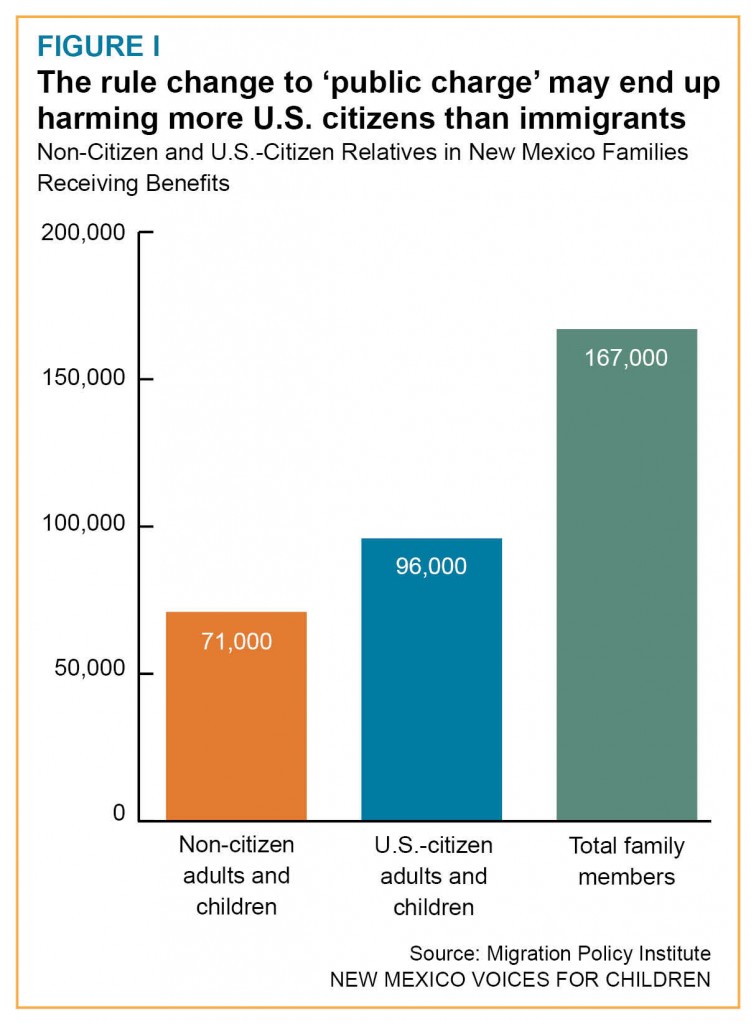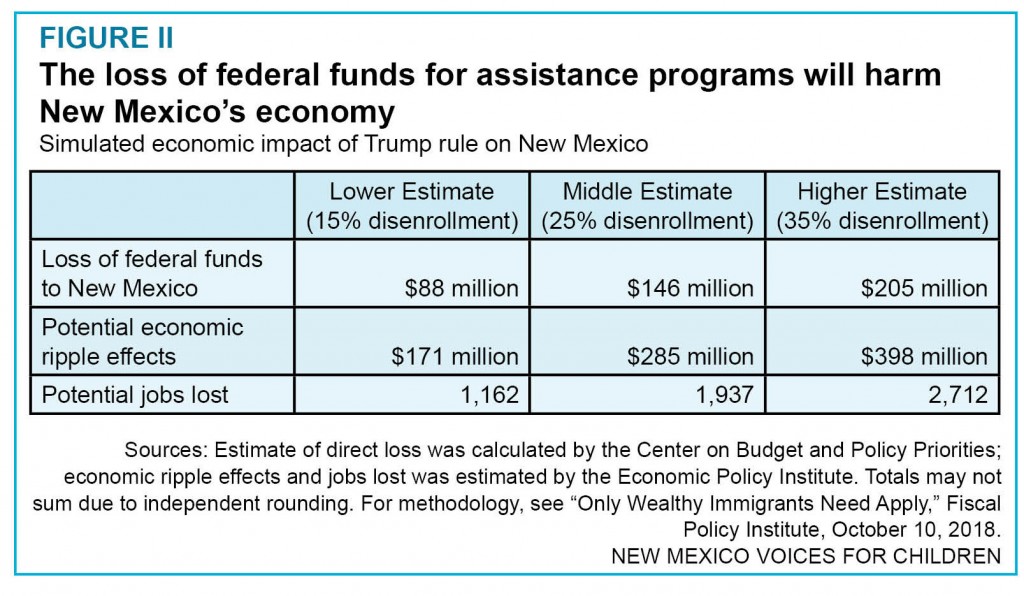By C. Estela Vasquez Guzman
Sept. 5, 2019
Enough! The continuous stream of unjustified, anti-immigrant federal policies must stop. President Trump’s administration has advanced a plethora of destructive, racist rules targeting communities of color – and it is putting our nation’s future at risk. Revisions to the public charge rule have recently become final, endangering our diverse immigrant population and potentially creating long lasting, negative impacts. This revision is not acceptable, it targets immigrant families who are already residing legally in the United States, and it does not reflect America’s historical tradition of welcoming those seeking to make a better life. But there is still time stop this rule from being implemented.
Under the original rule, a person was considered a public charge – a term first introduced in 1882 – if they were judged likely to become primarily dependent on the government for subsistence. This label can be used to deny green cards and visas to immigrants, and even entry into the United States. The new rule adds the use of several assistance programs – such as food assistance (SNAP), health care (Medicaid), and housing – to the list that could qualify someone as a public charge. It also adds a time period – receipt of these benefits for a total of 12 months out of the last 36. For example, the use of SNAP and Medicaid in a single month will be counted as two months. Also, several other factors are now heavily weighted – for example, a person’s income, health, English proficiency, credit score, and age. These revisions dramatically alter the long-standing interpretation of public charge.
The bottom line message that’s conveyed by this administration in its policies and rhetoric is that if you are not young, healthy, educated, and wealthy, you are not welcome here. Trump’s proposed rule makes it harder for working families of modest means to remain in the country as permanent residents or gain lawful entry, and puts their health and well-being at risk. When families forgo assistance, there are long-term negative consequences, especially for their U.S.-born children. We know that when children miss out on nutrition and health care assistance, the negative impacts can be long lasting. Evidence continues to show that children born to immigrant families are upwardly mobile, so ensuring their well-being brings future benefits to the U.S. economy overall.
 Families are complex and many are made up of people with different immigration and citizenship statuses (see Figure I). New Mexico has 123,000 non-citizen residents and about half of them have children. Under the original public charge rules, only 3 percent of that population was impacted, but under the new rules, that number jumps to 58 percent. While 19 percent of our children have at least one foreign-born parent, 90 percent of those children are U.S.-born citizens. Nearly two-thirds of our U.S.-born children live with a non-citizen parent who lawfully accesses public benefits – often times on the child’s behalf. Many parents forego benefits for themselves or their children out of fear that doing so may result in their family being separated.
Families are complex and many are made up of people with different immigration and citizenship statuses (see Figure I). New Mexico has 123,000 non-citizen residents and about half of them have children. Under the original public charge rules, only 3 percent of that population was impacted, but under the new rules, that number jumps to 58 percent. While 19 percent of our children have at least one foreign-born parent, 90 percent of those children are U.S.-born citizens. Nearly two-thirds of our U.S.-born children live with a non-citizen parent who lawfully accesses public benefits – often times on the child’s behalf. Many parents forego benefits for themselves or their children out of fear that doing so may result in their family being separated.
Even before the rule became final, reports suggest that many immigrants dis-enrolled themselves and their children from government benefit programs and many avoided seeking support. As a result, advocates created the Protecting Immigrant Families (PIF) campaign. PIF is a coalition of more than 350 active member organizations created by the National Immigration Law Center and Center for Law and Social Policy. Their work contributed to getting more than 260,000 comments about the rule change submitted. Multiple professionals and organizations strongly opposed public charge changes, including community health centers, health care plans, and public health groups, as well as members of Congress. They cited the negative consequences on families’ lives, children’s outcomes, and our nation’s economy as reasons to oppose this rule change. Conservative estimates from the Center on Budget and Policy Priorities show that even with just a 25 percent dis-enrollment from any of these services, New Mexico stands to lose as much as $146 million in federal funds. Without that money circulating in our economy, the repercussions would be as high as $285 million (see Figure II).

Though final, the rule will not be implemented until October 15, 2019. We can still fight back through litigation. New Mexico is one of 13 states filing a lawsuit – which is one of six active suits – against this public charge revision. Immigrants contribute to our states and nation’s gross domestic product, social security, and taxes, and this racist rule change undermines the nation’s potential of the children who make up a large share of America’s future workforce, just because of where their parents were born. This is not the first time such proposed changes have been raised about public charge. There is a long history of similar proposals, but targeted at different groups. Now more than ever, it’s important that we come together to break the cycle of deep racial and economic injustices our nation faces.
When New Mexico’s families and children are experiencing a rough financial patch, they should not be afraid to access any food, health care, or housing assistance they are lawfully qualified to receive. Our current array of benefits are well-proven anti-poverty programs. Our nation is strongest when everyone has the opportunity to thrive. This final rule fundamentally redefines and undercuts the very idea of the American dream. President’s Trump revision to the public charge ruling is reckless, cruel, and only serves to harm our families and future generations.
Cirila Estela Vasquez Guzman, Ph.D., is a Research and Policy Analyst with New Mexico Voices for Children.
